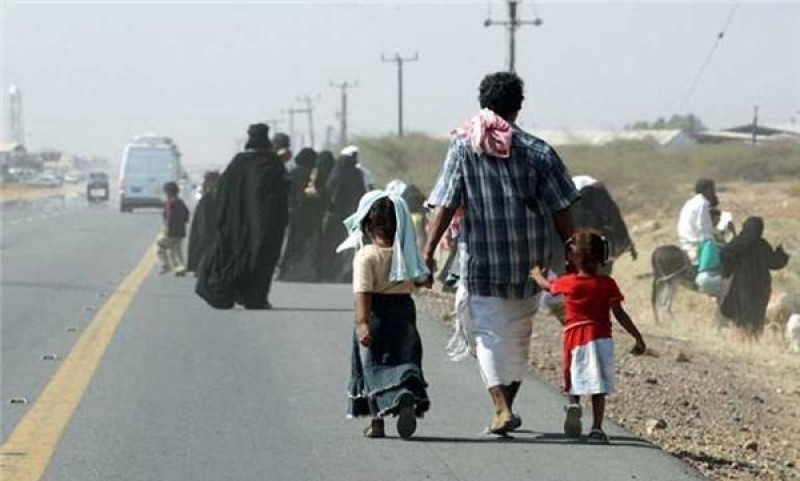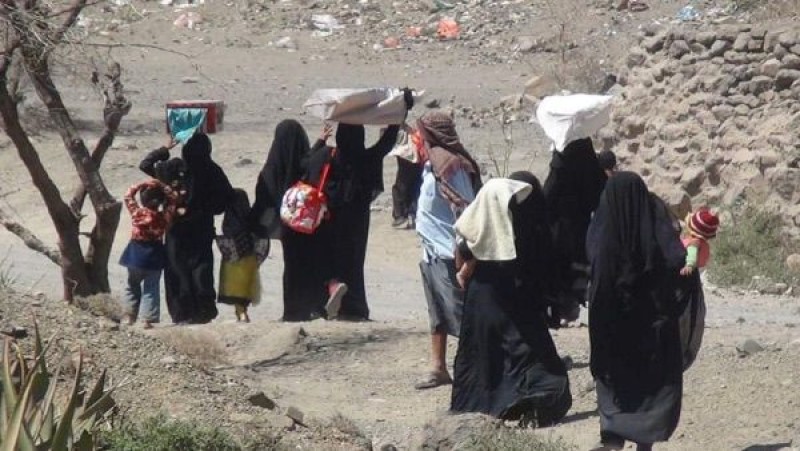Number of African immigrants in Yemen increased


Data distributed by the International Organization for Migration (IOM) showed that the number of African migrants who arrived in Yemen during the first half of 2023 is three times higher than the number that arrived in the country during the last three years.
According to the data of the international organization, the number of African migrants who arrived in Yemen until June 2023 recorded a record high; It exceeded 77,000 immigrants, which is more than what was recorded throughout the past year, when the number of immigrants arriving reached 73,000, while the numbers in the previous year were only 27,000 immigrants, compared to the arrival of 37,000 immigrants during 2020.
According to the report; The number recorded during the past half of this year increases by 321 percent over the same period during the past three years, which is an increase of about 147 percent over last year, 672 percent over the previous year, and about 144 percent over 2020.
Reasons for the rise
The large increase in the flow of migrants was attributed by the organization to the continuation of the conflict in the countries of the Horn of Africa, especially Ethiopia and Somalia, and the deterioration of the security, humanitarian and economic conditions, in addition to the end of the restrictions that were imposed on movement due to the “Corona” virus. The majority of them intend to reach the Gulf states to find work, but they face violations and difficulties in Yemen, and very limited access to basic services, such as shelter, food, water and health care.
The Assistant Secretary-General for Humanitarian Affairs, Deputy Emergency Relief Coordinator, Joyce Msuya, said that hundreds of thousands of migrants and asylum seekers in Yemen need urgent humanitarian assistance during the current year, and warned that more than a million migrants and asylum seekers would lose access to basic services if they did not receive them. United Nations additional funding.
Msoya asserts that 300,000 immigrants, refugees and asylum seekers need humanitarian assistance this year, and that they are classified among the most vulnerable groups in Yemen. They "face (severe protection risks) and have difficulty accessing health or social services, if any, due to the lack of documentation and already overstretched public resources."
The UN official said that the large increase in the number of migrants arriving in Yemen doubles their needs for food, shelter and the provision of protection services, and this puts great pressure on financial resources that suffer from permanent and chronic gaps.
campaign in Shabwa
The local authorities in Shabwa Governorate (south of Marib) launched a campaign to confront the influx of African migrants across the coasts of the Arabian Sea, after changing the route of these dangerous journeys, as a result of the security measures taken by the Djiboutian authorities. This caused the accumulation of migrants arriving on the Yemeni coast on the Red Sea.
Colonel Abdul Karim Lamrouq, Director General of the Criminal Investigation Department in Shabwa Governorate, said in a statement reported by official sources that the security committee has taken a number of measures to limit the residence of illegal immigrants in the city of Ataq, the capital of the governorate. Starting from educational awareness, to applying legal procedures towards those who violate these procedures.
The Director of Criminal Investigation directed neighborhood officials to play their role, and to prevent the harboring of illegal immigrants, and called for more spreading societal awareness regarding the phenomenon of dealing with illegal immigrants; Whether by sheltering, working, or moving them from one region to another, and the negative consequences that follow, he warned that violators would be subjected to legal procedures.
The security official pledged that the security services would carry out their tasks in the face of the dangers of the flow of illegal immigrants, whose flow had a negative impact, and called on the international organizations concerned with migration to play the role assigned to them to find urgent solutions. And in accordance with international and humanitarian laws.

Shabwa – A new human rights report has revealed that tribal revenge incidents claimed the lives of dozens and left many more injured in Shabw…

Sana’a – The International Organization for Migration (IOM) announced that more than 24,000 people have been displaced across Yemen sin…

Aden — The International Organization for Migration (IOM) reported that more than 24,000 people have been internally displaced in Yemen since…